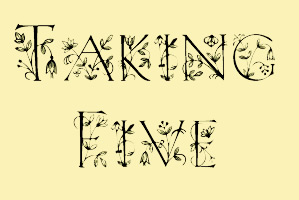

| |
| |
|
Dr. Ben Carson, the director of pediatric neurosurgery at John Hopkins Hospital, is an example for African-American youth. Yet, if Ben is a hero, his mother, Sonya Carson, is the heroine of his story. Sonya was one of 24 children, and married at the age of 13, when she moved with her husband from Chattanooga, Tenn. to Detroit, where he found a job in the Cadillac plant, and worked there until he retired in 1970. The couple had two children, Curtis and Ben, who loved their father and were despondent when their parents separated. He had a mistress and children by her. Sonya filed for divorce when Curtis was ten and Ben, eight. With a third grade education, the mother worked long hours doing domestic work, mainly for wealthy people, and she passed on her observations to her boys, as recorded in Ben's autobiography, "Gifted Hands." "This is what wealthy people do. This is how successful people behave. Here's how they think. You boys can do it, too, and you can do it better!" When studies overwhelmed them, she would say, "You weren't born to be a failure. You can do it. You just ask the Lord, and he'll help you." At the age of eight, Ben heard a missionary speak, and made up his mind to be a missionary doctor. His mother's reaction was, " Well, Bennie, then you will be a doctor." Becoming a doctor would demand a fine education, which Sonya didn't find in the local public school. It didn't matter if the children weren't made to learn their multiplication tables in school; Sonya's children learned them at home. Every week, she walked seven blocks with the boys to the library, and demanded that they read two books a week and report on them to her. Soon, the youngsters were reading many more. While other children were glued to their TV sets, Curtis and Ben were limited to three programs a week. The rest of the time was spent in study, reading, learning musical instruments, or playing outdoors. At times, the pressures of being a single mother became too much for Sonya, and she would leave her children with a friend while she checked herself into a mental hospital for treatment. After about three weeks, she was ready to resume her normal life. Little did she realize then that her Ben would grow up to be one of the greatest surgeons in the world, and would be able to bring peace to mothers and fathers while healing their children. Ben tells the story of 20-year old Theresa Binder of Ulm, West Germany, who, in January of 1987, contemplated suicide during her eight month, despondent that she would give birth to Siamese twin boys. Eventually, Theresa chose to give birth , and the boys were born by Caesarean section, weighing a total of eight pounds and joined at the back of their heads. The twins shared a section of the skull and skin tissue, as well as a major vein responsible for draining blood from the brain and returning it to the heart. The babies' doctor contacted Ben, who had been named the director of pediatric neurosurgery at John Hopkins at the age of 33, who consented to consider the case. For five months, the team of doctors studied procedures, and were successful in separating the twins in a 22-hour ordeal in surgery. We thank God for doctors like Ben and mothers like Sonya, an inspiration to all of every color, age and religion. Ben's story, "Gifted Hands," is now out in paperback. Wouldn't this story make a wonderful movie? Any producers in between jobs and looking for an Oscar? |
By Ruth Bertels
Home |
Archives |